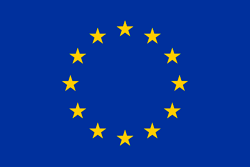"Local Energy Communities represent a new way of managing, using and generating energy in different forms: electricity, gas, heat, cooling, hydrogen, mobility or water”
We are developing a solution to increase the sustainability and energy security of Local Energy Communities within the framework of the eNeuron initiative
TECNALIA is working on the verification at simulation and laboratory level of the correct functioning of the tools that make up the eNeuron platform. It is also developing the application to support energy exchanges between prosumers according to the P2P(Prosumer to Prosumer) model, in collaboration with the Eindhoven University of Technology.
The eNeuron initiative is a solution to increase the sustainability and energy security of Local Energy Communities (LECs). It is a cloud-based management platform that dynamically balances energy supply and demand from multiple energy carriers. An advanced and pioneering technology that is key to address the intermittency of renewable energy, integrating it with the management of storage resources and the loads themselves.
Energy communities bring together different actors ranging from infrastructure providers, energy asset owners, network operators, aggregators, to energy service companies or end-users, and therefore their design and operation planning is difficult to optimise.
Implementation in pilot cases
The initiative is being tested in four European pilots:
- The city of Bydgoszcz in Poland, and its main energy nodes
- The Norwegian football stadium Skagerak and its surroundings
- A Lisbon naval district with its own distribution network
- And several locations on the university campus in Ancona, Italy
This verification phase will test its replicability as a concept and solution for different local community contexts.
Optimisation of local energy networks
The eNeuron initiative seeks to optimise local energy grids to ensure high penetration of renewable energy sources, enabling:
- Energy demand management of buildings and their processes, including waste heat recovery and heating and cooling, integration for economies of scale and diversification of heat and electricity supply from renewable energies to be improved.
- Mobility through the mass use of electric vehicles.
- ICTs to support intelligent monitoring and control to enable the minimisation of energy consumption and smart management of energy generation, storage and consumption flows and associated technologies.

**This project has received funding from the Horizon EU research and innovation program, in accordance with Subsidy Agreement No. 957779.
